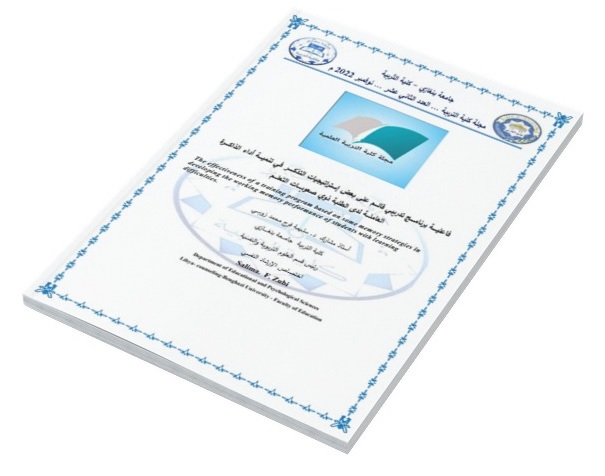The effectiveness of a training program based on some remembering strategies while developing the working memory performance of students with learning difficulties
DOI:
https://doi.org/10.37376/fesj.vi12.3716Keywords:
memory strategies, working memory, learning difficultiesAbstract
The study aimed to prepare a training program based on some remembering strategies. It also aimed at verifying the program effectiveness while developing the working memory performance of students with learning difficulties in the third grade of the basic education stage. The nature of the study requires the experimental methodology with a one-group design necessitated conducting two performances: pre and post. The study population reached (6617) male and female students, according to the statistics of the Documentation and Information Unit, Benghazi Education Sector 2021-2022. The sample was determined after diagnosing students with learning disabilities on the Michael Best scale. The sample was selected from third grade students whose grades were 40 degrees or more on the scale; it included (15) children (8 males and 7 females), their ages ranged (9-11) The results revealed a positive effect of the program, with the presence of statistically significant differences between the experimental group members in the pre and post-performance. And there were statistically significant differences between the arithmetic averages of male and female, where the average for males was (3.8750) with a standard deviation of (24398), and the mean for females was (3.7143), with a standard deviation of (15853). The results also revealed that there were differences between the ages of (9-10-11), which was in favor of the age of eleven, with an arithmetic mean of (3.9167) and a standard deviation of (27639). However, the results indicated no significant differences between the post and follow-up performance
Downloads

Downloads
Published
How to Cite
Issue
Section
License
Copyright (c) 2023 Faculty of Education Scientific Journal

This work is licensed under a Creative Commons Attribution-NonCommercial-NoDerivatives 4.0 International License.














